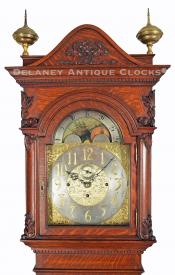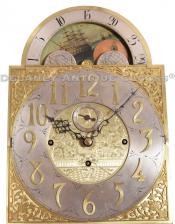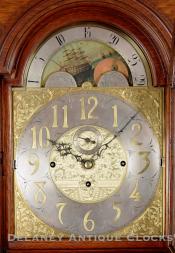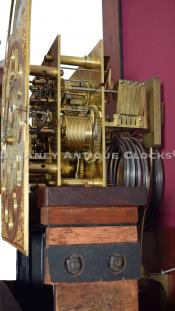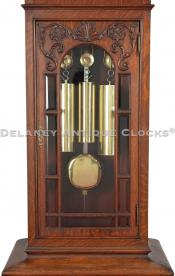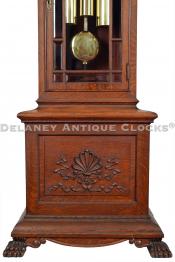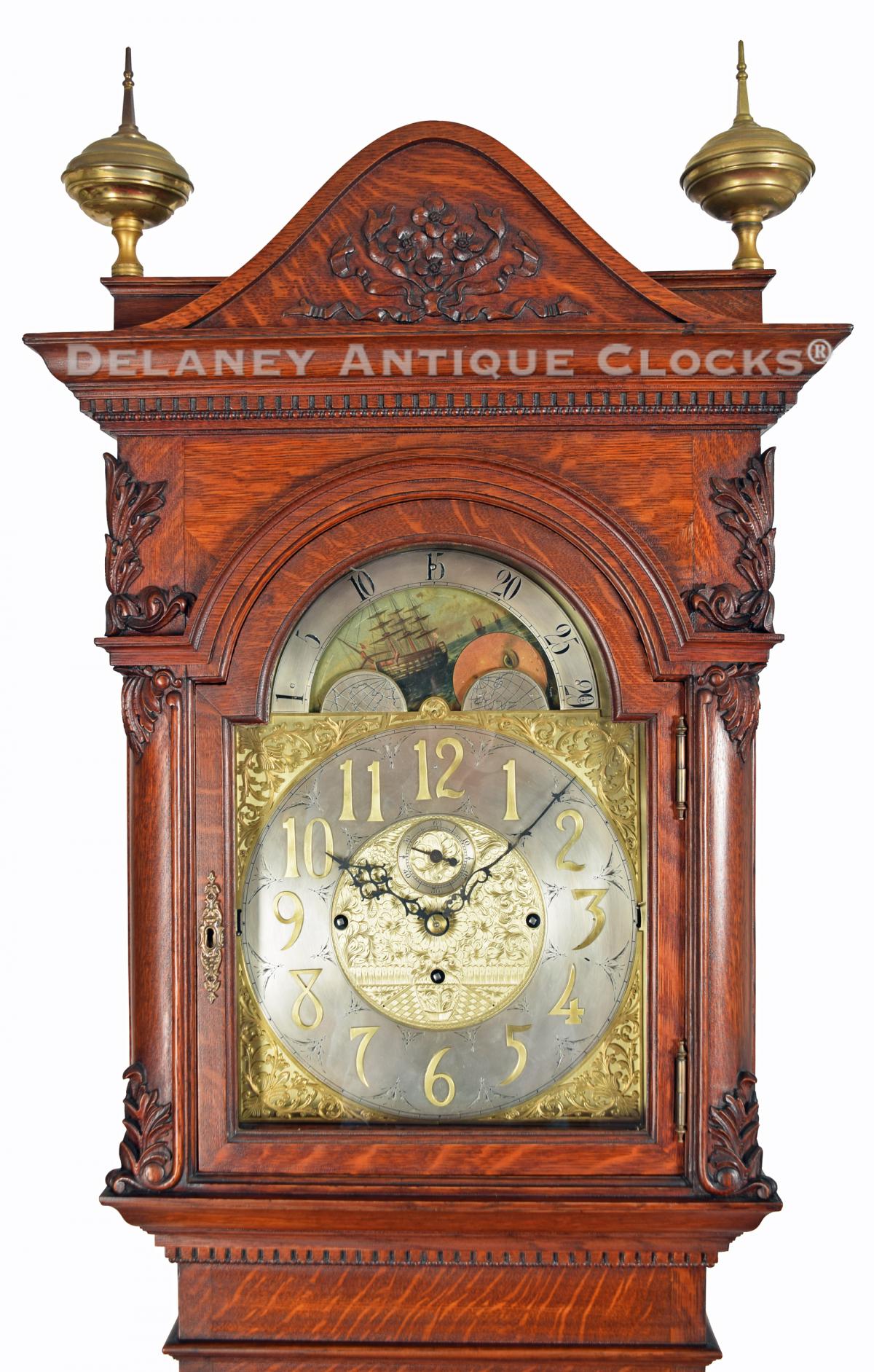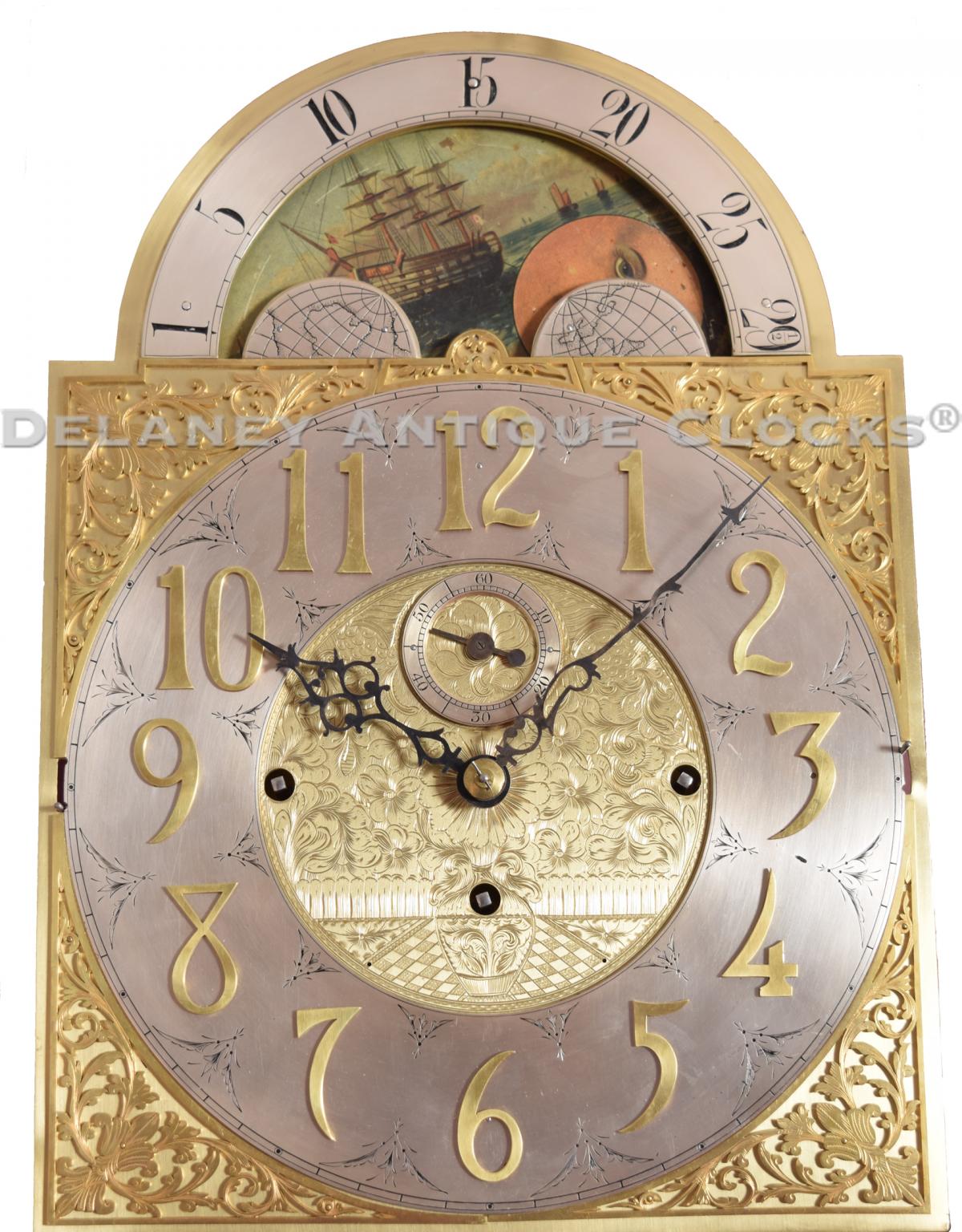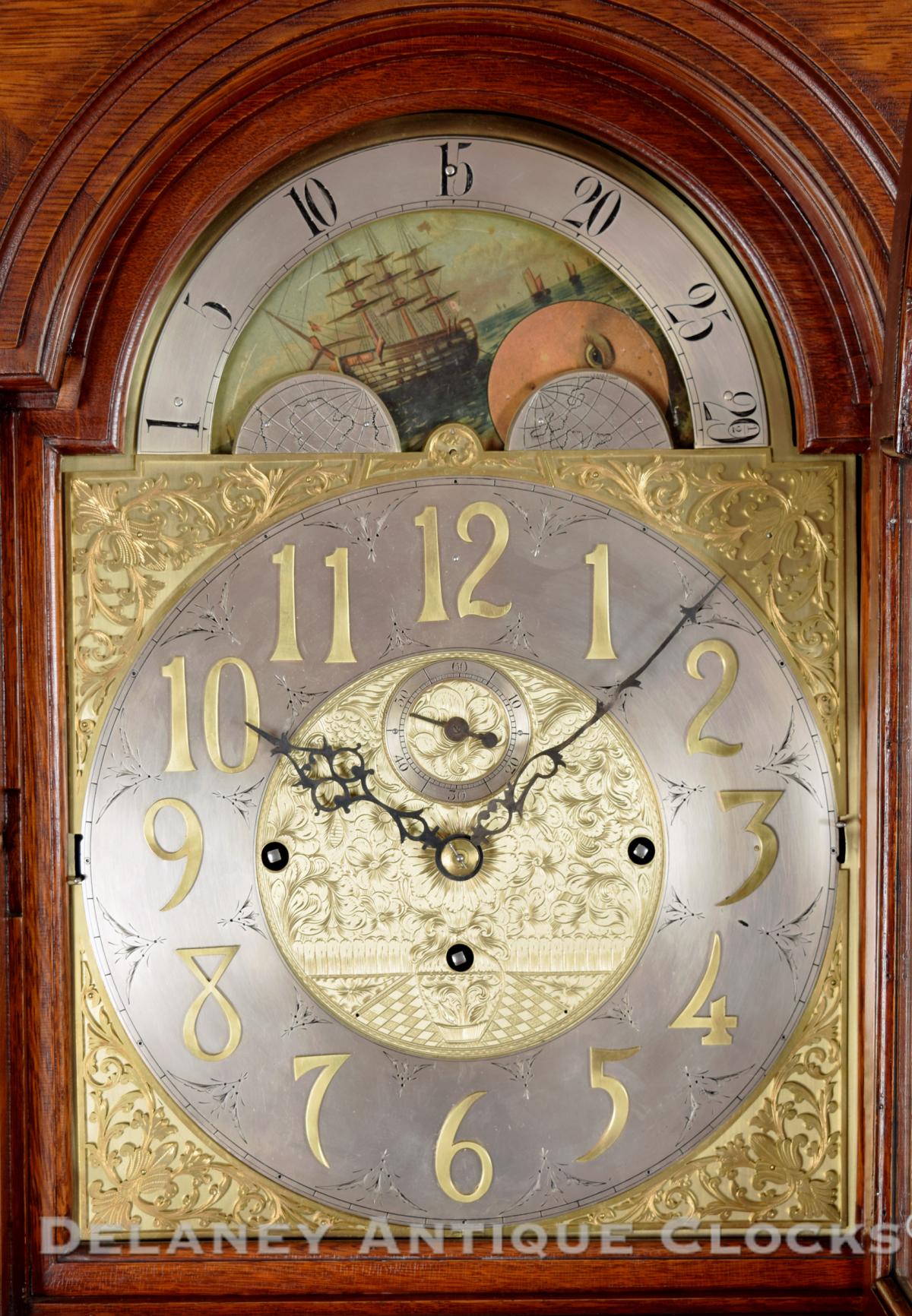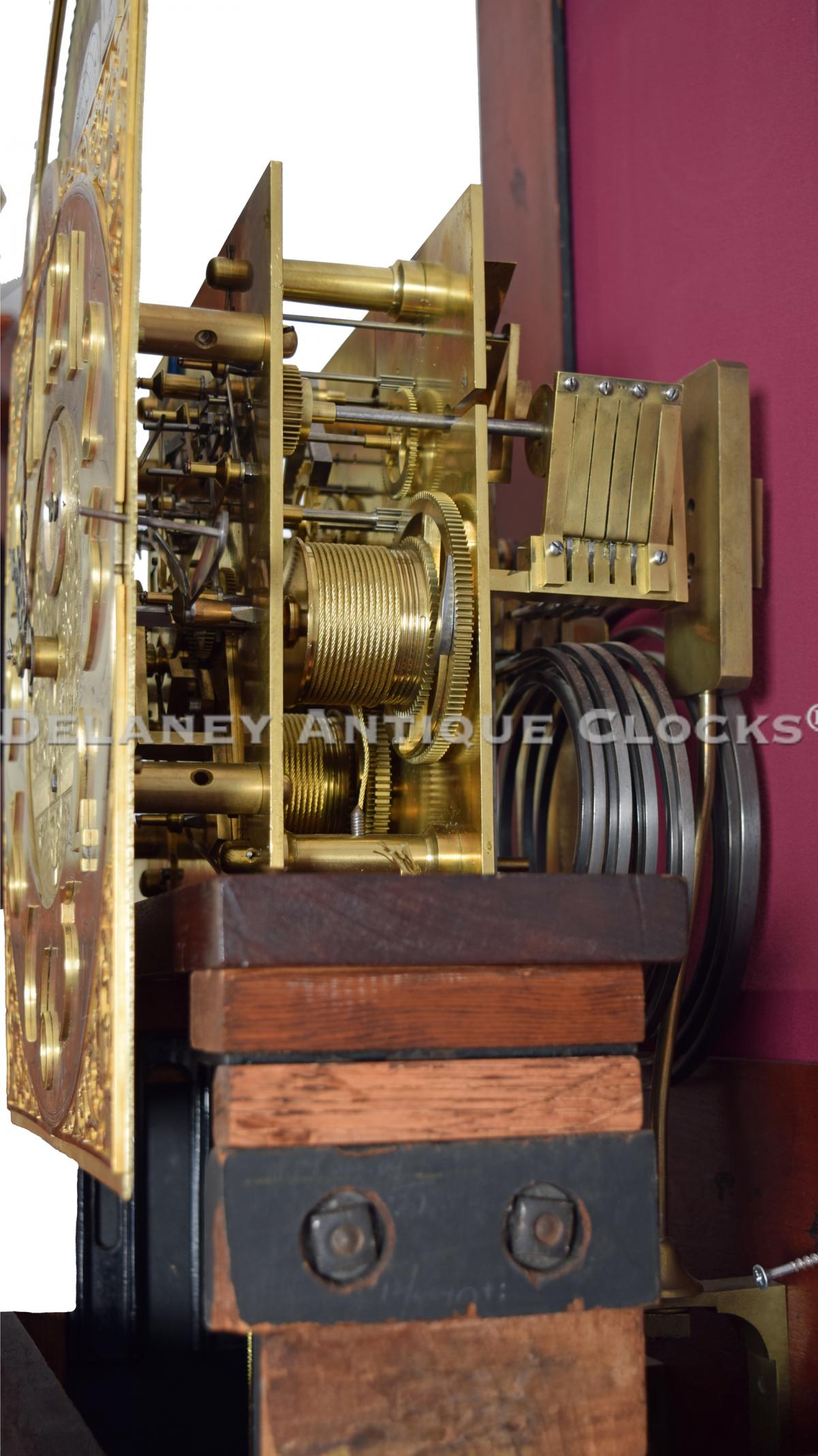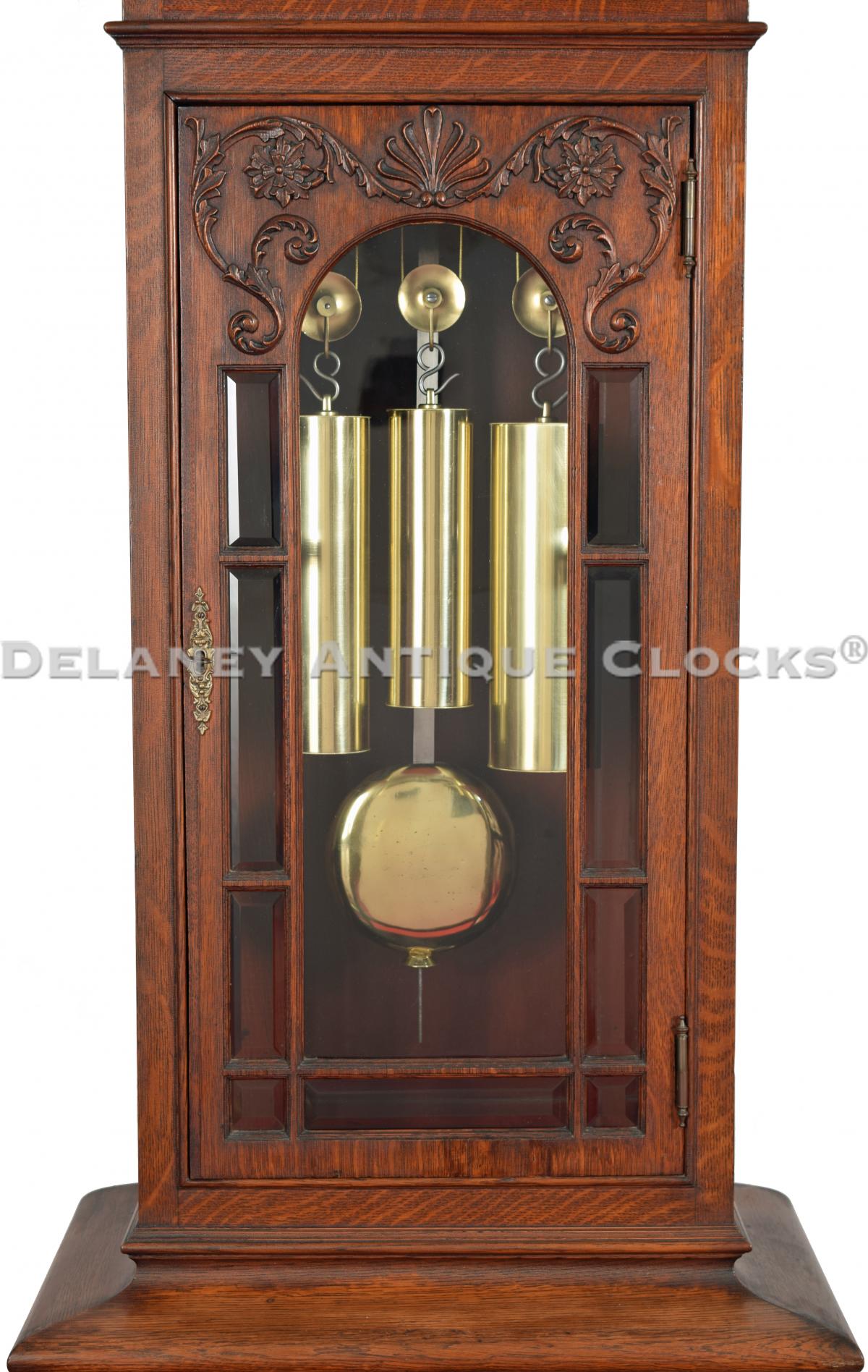This oak case hall clock featuring a J. J. Elliott made London movement. 222042.
The J. J. Elliott Ltd. clock-making firm in London, England, made this three-train movement housed in the elaborately decorated oak case.
The works are constructed in brass and are of the highest quality. Four turned pillars support the two large and heavy brass plates. Hardened steel shafts support the polished steel pinions and brass gearing. The three winding drums are grooved to accept the weight-bearing cables. This movement is made with retaining or maintaining power. The escapement is a Graham deadbeat design. The flat steel pendulum rod is supported by a brass bridge secured to the backplate. This rod suspends a brass-faced bob that is weighted with lead. This three-train movement is weight driven and designed to run eight days on a full wind. All three lead weights are covered in decorative brass casings. The strike train was designed to strike the hours and the quarter hours on a set of five coil gongs of varying lengths. These are suspended from a bracket that is rigidly mounted inside the case. When struck, the progressive tune played is Westminster. The quarter striking feature can be turned on or off by moving a lever on the right side of the dial. When this is turned off, the clock will strike each hour on the hour. The hour striking can also be turned off by moving the lever on the left side of the dial.
The decoratively engraved brass dial features applied details such as a silvered chapter ring, brass Arabic hour numerals, and floral-themed spandrels. The subsidiary seconds dial is also finished in a silver wash. It is engraved with Arabic numerals every ten seconds. The center of the dial features an engraved floral theme. An automated lunar calendar is located in the arch. This dial disk is colorfully painted and displays the phases of the moon.
This oak-constructed case is challenging to describe because the case design is complex. Much of the oak wood is quarter sawn, and as a result, the grain is presented in a lively fashion. The clean, warm tinted finish enhances the overall appearance. Applied floral, ribbons, and shell-carved decorations are positioned throughout the case structure. The cabinet is elevated off the floor on four nicely formed animal paw-style feet. A drop swag carving hangs from below the base. The base is decorated with many carved elements. A carved shell is centered on the inset base panel. The waist is nicely designed. The rectangular-shaped door is fitted with ten glass panels. Through these, one can see the three large brass-covered drive weights and a brass-faced pendulum bob. The top of the door is decorated with applied floral and vine carvings. This door is hinged and locks closed with a key. The bonnet or hood is fitted with an arched top. This sits above a cornice molding that features dentil and beaded decorative moldings. The sides of the arch feature are blocked detail. Large brass finials are fitted on the front corners. Additional carvings are applied to the tympanum, the corners of the facade, and in place of hood columns. Sound frets or wooden grills are featured on the side of the hood.
This example makes a statement and has a fabulous presence. The case dimensions are 8 feet 3 inches or 99 inches tall, 3\28 inches wide, and 16.5 inches deep. This clock was made circa 1910.
Inventory number 222042.


